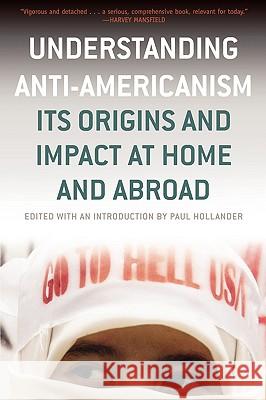Understanding Anti-Americanism: Its Orgins and Impact at Home and Abroad » książka
Understanding Anti-Americanism: Its Orgins and Impact at Home and Abroad
ISBN-13: 9781566635646 / Angielski / Twarda / 2004 / 378 str.
Understanding Anti-Americanism: Its Orgins and Impact at Home and Abroad
ISBN-13: 9781566635646 / Angielski / Twarda / 2004 / 378 str.
(netto: 133,87 VAT: 5%)
Najniższa cena z 30 dni: 138,65
ok. 16-18 dni roboczych.
Darmowa dostawa!
Although it has been a global phenomenon for decades before recent acts of massive violence, anti-Americanism has prompted few serious studies in English. This collection of original reports and observations seeks to explain its impact in areas throughout the world, taking advantage of the cultural and geographical expertise of the contributors. Understanding Anti-Americanism distinguishes between rational and specific critiques of American foreign policy and American society on the one hand, and that brand of hostile predisposition that blames the United States for a wide variety of grievances and frustrations that are at best tangentially related to its policies, institutions, or way of life. The book includes essays on the historical origins of anti-Americanism and its occurrences in the Arab world, Western Europe, post-Communist Russia, Latin America, and China. Like-minded sentiments within the United States are examined in the contexts of education, mass culture, the peace movements, and feminist rejections of American society, and in a comparison of trends between the 1960s and the twenty-first century. Recent international developments as well as U.S. leadership in modernization and globalization receive special attention as sources of hostility. Among the contributors are James Ceaser, Patrick Clawson, Walter Connor, Anthony Daniels, Dario Fernandez-Morera, Adam Garfinkle, Roger Kimball, Harvey Klehr, Michael Radu, Barry Rubin, Bruce Thornton, Arthur Waldron, and Cathy Young. In his substantial Introduction, Paul Hollander examines the major sources and expressions of anti-Americanism and suggests reasons why it is unlikely to disappear or diminish in the near future, notwithstanding its irrational features and the spectacle of millions of people voting with their feet to become members of this much maligned society.











